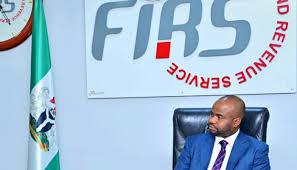The International Monetary Fund (IMF) has pledged to maintain its support for Nigeria’s tax reform efforts through the Federal Inland Revenue Service (FIRS), especially as the country prepares to implement new tax laws aimed at boosting revenue mobilisation and improving economic governance.
This assurance was given by Paulo Paz, a Senior Economist from the Fiscal Affairs Department of the IMF, during the opening of an IMF-backed Headquarters Mission at the FIRS office in Abuja. Paz praised FIRS for making notable progress under the leadership of its Executive Chairman, Dr. Zacch Adedeji, citing improved efficiency and value delivery to Nigerian citizens.
According to Paz, the IMF is keen to offer technical support in areas that align with Nigeria’s fiscal objectives, particularly as the FIRS takes on broader responsibilities following the signing of four new tax laws. These laws, according to him, are set to transform the country’s tax landscape and further underscore the importance of an efficient tax administration.
“These new tax laws will bring new impact to Nigeria,” Paz said. “And we want to know how we can best support you with this new challenge. Our take on the four tax laws is, first, a recognition of the very good work that FIRS has been providing to the citizens. You now have new responsibilities with these powerful laws, which will further increase the relevance of tax administration in Nigeria.”
He also commended the openness of FIRS to external collaboration and technical input, adding, “Thank you for your trust in our advice. We congratulate you for the good results so far. There is more to come, and we are here to help.”
Dr. Adedeji, represented at the session by his Chief of Staff, Tayo Koleosho, described the IMF as a long-term partner in the tax agency’s reform journey. He said FIRS looks forward to continuing the collaboration even as it transitions to a more autonomous structure under the proposed Nigeria Revenue Service (NRS).
“IMF has gone on this journey with us, and I think we are in a good place to continue the journey together,” Koleosho stated. “We are working together in areas such as digital transformation, VAT automation, compliance programmes, and the automation of tax processes. I am particularly interested in corporate planning and data portfolio management so that our overall strategy can be translated into actionable and measurable tasks.”
Also speaking at the session, Mrs. Bolaji Akintola, Coordinating Director of the Corporate Services Group at FIRS, described the IMF as a strategic partner in strengthening Nigeria’s domestic revenue generation. She highlighted how the institution has supported FIRS through various reform initiatives, especially the use of the Tax Administration Diagnostic Assessment Tool (TADAT) to evaluate system performance and identify gaps.
According to her, FIRS conducted two TADAT assessments between 2018 and 2023, each followed by reform roadmaps developed through post-TADAT missions. The results of the 2023 assessment, she noted, showed significant improvements compared to 2018, pointing to the commitment of FIRS to institutional excellence.
“If another TADAT assessment were conducted today, the results would likely surpass those of 2023,” Akintola said. “Several of the weaknesses identified then have already been addressed. Many of these changes are now reflected in the four tax reform laws recently signed by President Bola Ahmed Tinubu.”
The four new tax laws, which aim to enhance revenue mobilisation and promote transparency, are expected to reinforce the fiscal policy agenda of the Tinubu administration. These laws include reforms in areas such as corporate tax compliance, digital economy taxation, and administrative efficiency.
The IMF-FIRS collaboration aligns with broader global trends where multilateral institutions are helping developing countries build stronger revenue systems. Experts say improving Nigeria’s tax system is critical, especially at a time when the country is seeking to reduce its reliance on borrowing and oil revenues.
The mission’s visit comes at a crucial time as Nigeria works to align its fiscal strategies with global best practices and improve public service delivery through improved tax revenues. The outcome of the IMF’s support is expected to further strengthen FIRS’s institutional capabilities as it prepares to evolve into the Nigeria Revenue Service.
